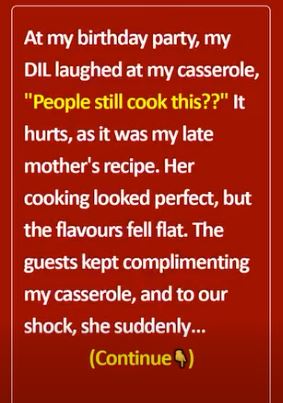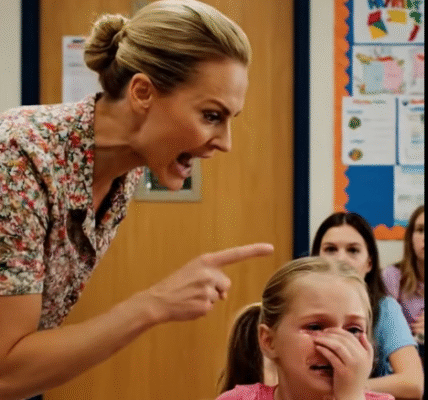On my birthday, I was making Mom’s casserole—her handwritten recipe, the smell of Sunday dinners past—when my daughter-in-law walked in and laughed: “Do people still cook this?”
I smiled, but it stung. That dish was my mother, gone too soon.
A week later, she offered to cook for guests. I said, “Let’s see if your food speaks louder than your words.” Her plates looked perfect; the taste didn’t. Guests quietly asked for my casserole. “No one makes it like you,” they said.
She never apologized.
Then, taking out recycling, I found my recipe book—grease-stained, full of Mom’s notes, my kids’ doodles—in the trash. “Why?” I asked. “I won’t be made uncomfortable in front of guests,” she said.
No remorse. Just erasure.
She could’ve asked to learn. I would’ve taught her everything. Instead, she threw away my history and called it self-defense.
Now trust feels impossible. How do you forgive someone who doesn’t see what they’ve destroyed?




